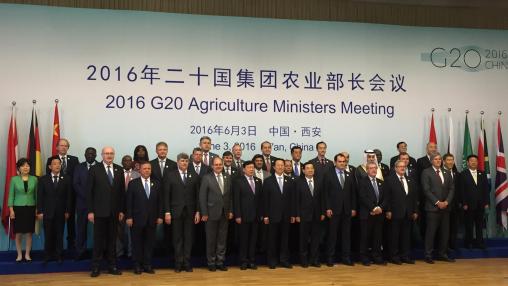
China G20 Agriculture Ministers Communique
The G20 Agriculture Ministers met in Xi’an on June 3 to discuss the ways in which the members can promote food security, nutrition, sustainable agricultural growth and rural development worldwide. In the communique, the ministers noted an increased commitment to the Sustainable Development goals (SDGs). In particular, they noted that agriculture and rural development are critical for global food security and poverty alleviation and that coordination across political boundaries will be needed to meet the complex challenges including climate change.

G20 and G7 Historical Documents
Agriculture, food prices, and food and nutrition security have long played an important role in the G7 and G20 meetings. The following links provide a timeline of some of the most important agriculture- and food-related decisions to come out of these meetings since 2011.
G7 Leaders's Declaration on Food Security
Paris G20 Action Plan on Food Price Volatility and Agriculture
Mexico G20 Agriculture Vice Ministers/Deputies Report
Australia G20 Framework on Food Security and Nutrition
Turkey G20 Agriculture Ministers' Communique
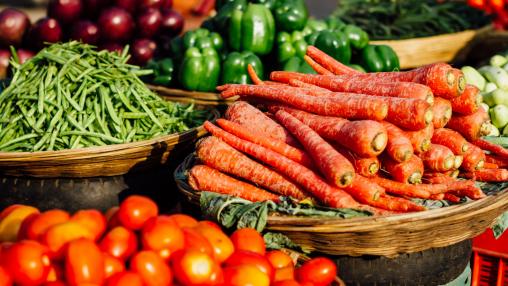
New knowledge-sharing initiative to measure and reduce food loss and waste
The Food and Agriculture Organization of the United Nations (FAO), the International Food Policy Research Institute (IFPRI) and the CGIAR research program on Policies, Institutions, and Markets (PIM) today launched a new initiative to enhance global cooperation on measuring and reducing food loss and waste. The G20 agriculture ministers requested FAO and IFPRI to launch this initiative in Istanbul, Turkey, this past May.
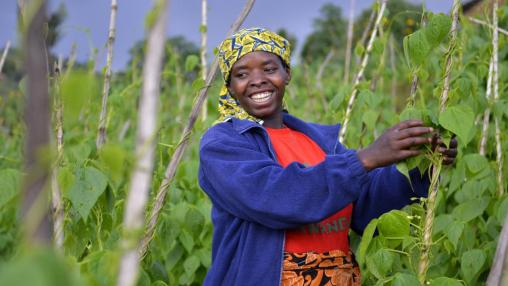
Increasing resilience requires an effective framework for measurement
In the face of price spikes, climate change, and other stressors from the national to the global scale, the promotion of resilience has gained traction in the development community as a means of insuring that populations vulnerable to food and nutrition insecurity are equipped with the tools to survive and even thrive in our unpredictable world.

G20 Agriculture Ministers Meet in Istanbul to Discuss Sustainable Food Systems
G20 Ministers of Agriculture met in Istanbul on 7-8 May 2015 for the first time since 2011 to address rising challenges concerning food security.
World population is expected to reach nine billion by 2050. This will increase the challenge for global food security and nutrition. In their Communique, Ministers underlined their commitment to meet this challenge. They agreed that establishing sustainable food systems is essential to cope with growing challenges in food security. They also highlighted the importance of reducing food losses and waste, which is a global problem.

Putting Nutrition on the G8 Agenda
The 2013 G8 Summit is fast approaching, and development actors around the world are pressing for malnutrition to take center stage at the talks. In the lead-up to the summit, The Lancet , one of the world's most prestigious medical journals, has released a new series on maternal and child malnutrition . This latest series continues the discussion generated by the journal's 2008 series on nutrition, which culminated in the creation of the Scaling Up Nutrition (SUN) movement and recent increased focus on the importance of a child's first 1,000 days.

Joint UNCTAD-OECD Report Analyzes G20 Countries' Investment Policy Measures
The seventh joint report of the UNCTAD-OECD on G20 countries' investment policies was released on May 29. This report is released every seven months and looks at recent policy measures taken by G20 countries to determine possible impacts they may have on the global investment and economic situation. The report was called for during the 2011 Cannes Summit as part of the G20 leaders' commitment to reduce protectionist policies.
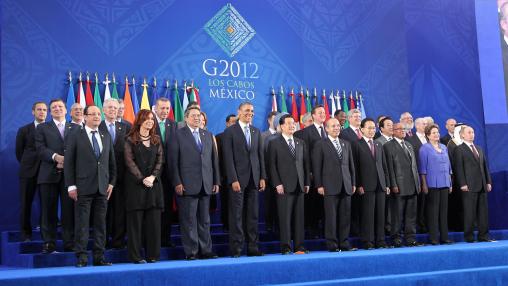
Food Security and the G20
On June 18-19, leaders of the G20 will meet in Los Cabos, Mexico to continue addressing global challenges such as food security and food price volatility. The 2011 G20 Summit led to important steps to reduce price volatility, including the creation of the Excessive Food Price Variability Early Warning system and the Agricultural Market Information System (AMIS) . This year's summit will need to expand upon these steps in order to reach the goals of reduced volatility, poverty reduction, and global food security.
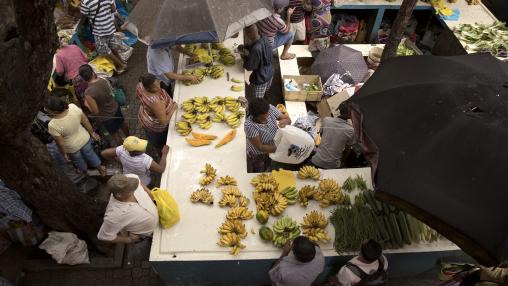
Market Access
Economic growth in developing countries is often constrained by a lack of access to regional and global markets. Without reliable access to fair, transparent markets, the poor in developing countries stand little chance of escaping poverty and hunger. In recent years, the call for structural reforms of global markets has increased, focusing largely on protectionist trade policies such as export restrictions and tariffs.
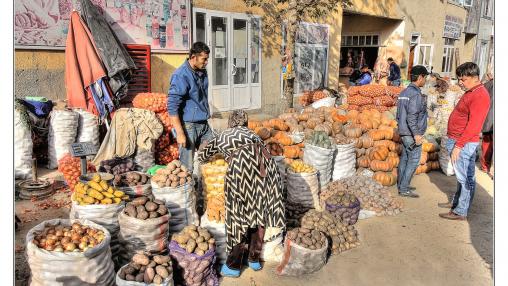
WTO Food Security Site Keeps Up-to-Date with Latest Food Supply and Market Information
Global food security is constantly impacted by many issues at the local, national, regional, and international levels - politics, agricultural market changes, fuel prices, weather conditions, war, speculation and trading, and many more. Keeping track of all of these developing issues is an overwhelming, but crucial, task for policymakers to appropriately address the needs of the world's food insecure populations.